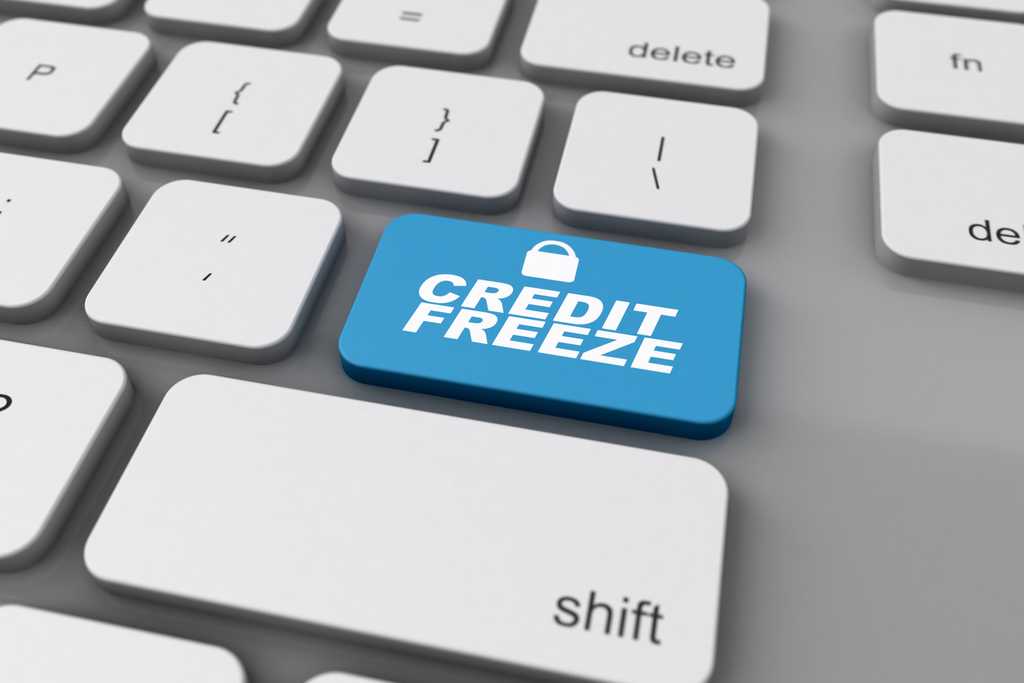If you’ve ever discovered that your personal information was compromised in a data breach, wanted to have general protection against identity fraud, or are a recent victim of identity theft—a credit freeze could be exactly what you need. A credit freeze offers consumers a way to protect themselves from identity theft and other forms of fraud by restricting access to their credit profiles.
Here’s what you need to know about how credit freezes—both how to activate and lift a credit freeze. Keep reading to learn if this identity protection method could work for you.
What is a credit freeze?
A credit freeze is a restriction you put on your credit profile to prevent anyone, including yourself, from accessing your credit report. It is also called a security freeze. Lifting a credit freeze is referred to as unfreezing or thawing your credit.
You should know that a credit freeze is different from a credit lock and a fraud alert. However, all three are ways you can explore to safeguard your credit.
How does a credit freeze work?
When you request a credit freeze, it means that no one can apply for new credit accounts in your name—not even you. As a result, you can’t open new credit accounts when you have a credit freeze in place.
However, if there comes a time when you need to lift the freeze, the processes can be completed in a few quick steps (covered below). Even when you freeze and unfreeze your credit, your credit score is not affected by freezing or thawing your account.
How a credit freeze works
The recent Economic Growth, Regulatory Relief, and Consumer Protection Act law makes it easy for anyone to request a credit freeze for free. It requires the three national credit bureaus (Experian, Equifax, and TransUnion) to have credit freeze-specific websites allowing consumers to request security freezes.
Normally, all three national credit bureaus share your credit information with potential lenders. However, when you freeze your credit, they must keep this information private. Although you can temporarily lift a credit freeze if you need to apply for new credit, you typically don’t need to do this to apply for a job, rent an apartment, or buy insurance.
Once you place a security freeze on your account, the bureau will provide you with a PIN or password. You will need it to remove the security freeze or if you need to temporarily release your credit report for a specific person or period of time.
Advantages and disadvantages of freezing your credit
A credit freeze is an easy way for many people to add an extra layer of security to their credit profile. However, there are some situations when freezing isn’t your best option.
Pros of a Credit Freeze
- It prevents someone from creating fraudulent trade lines (credit accounts) in your name.
- It doesn’t affect your credit score.
- A credit freeze doesn’t affect your ability to use your existing credit accounts.
- You don’t have to worry about it expiring until you lift it.
- It provides some assurance that your credit profile is secure against fraud.
- It prevents credit bureaus from selling your data to potential lenders.
Cons of a Credit Freeze
- It can delay or interfere with the timely approval of applications for new credit, loans, or services.
- You need to contact each credit bureau separately to lift the freeze.
- If you lose your PIN, it can take a lot of time to restore access to your credit freeze account with the bureau.
- It’s not a total guarantee against credit fraud or identity theft.
How to Freeze Your Credit
There is no charge to freeze your credit. To start the process, you will need to provide some personally identifiable information to verify your identity to each of the three national credit bureaus. This can be done online by phone or in writing:
Equifax
- Equifax Credit Freeze Website
- Call 800-685-1111
- Mail your request to Equifax Information Services LLC, P.O. Box 105788, Atlanta, GA 30348.
Experian
- Security Freeze Center at Experian
- Call 888-397-3742
- Mail your request to Experian Security Freeze, P.O. Box 9554, Allen, TX 75013
TransUnion
- TransUnion Credit Freeze
- Call 888-909-8872
- Mail your request to TransUnion P.O. Box 160, Woodlyn, PA 19094
Please note that a credit freeze requires that you contact each of these bureaus separately. If you make your request by mail, the process may take up to three business days to take effect. However, an online request or one made by phone typically takes effect within an hour. Sometimes, the bureaus can process your request in less than ten minutes, but don’t plan on this being the case every time.
How Long Does a Credit Freeze Last?
A credit freeze usually lasts for as long as you want them to. You can choose a length of time or have the credit freeze remain active indefinitely. It may take up to one business day for the credit bureau to activate your credit freeze. The time it takes to unfreeze your credit depends on how you request the reversal of the freeze. Typically, requests submitted online are processed quicker.
How to Remove Your Credit Freeze
You can lift your credit freeze, either permanently or for a certain period of time the same way that you enable the credit freeze. You’ll initiate a request with the credit bureau that issued the freeze.
As mentioned above, the time it takes for the bureau to lift the security freeze depends on how you request the reversal. You can ask for the reversal via mail, online, or by phone. The credit bureaus must lift your credit freeze within an hour of receiving your request by phone or online.
However, it can take up to three business days if you request the freeze by mail. The three-day timeline begins after the credit bureau receives your notice.
Should you freeze your credit?
You should consider freezing your credit if your personal information has been compromised in any way. A credit freeze can go a long way in protecting you from identity theft or any misuse of your personal information. You can also use a credit freeze as a preventative measure, even if you are not a victim of identity theft. If you suspect fraud associated with your credit profile, you can also place a fraud alert with one of the credit bureaus to secure your personal information even more.
FAQs
Can I Freeze My Child's Report?
Yes. You can freeze a minor’s credit report if you are their parent, guardian, or have a valid power of an attorney. However, you will have to first provide the proper documentation to prove your identity and that you have the authority to act on behalf of the child. Then, you can send a written request to the bureaus to place a protected consumer freeze on your child's report.
Does a Credit Freeze Hurt Your Credit Score?
No. A credit freeze does not affect your credit score. However, you will have to lift the freeze first before applying for new credit.
Is Freezing Your Credit The Same as Locking It?
No. While credit freezing and locking protect your credit profile, they are not the same. A credit freeze is free, while a credit lock is a paid product offered by credit bureaus that may give you more alerts and monitoring services for your credit. Although credit lock products have more features, they are not governed by federal law.

